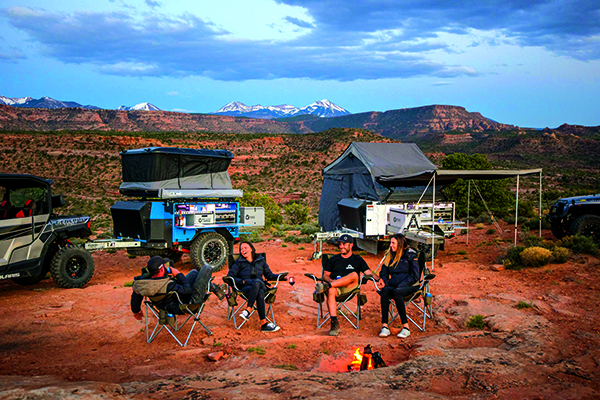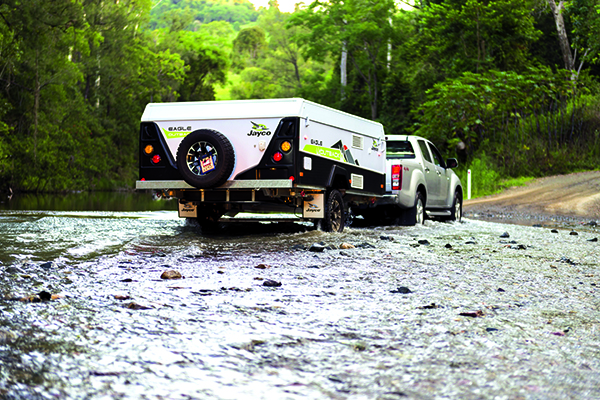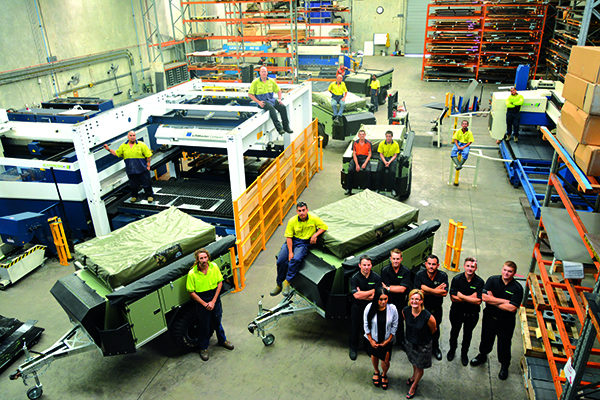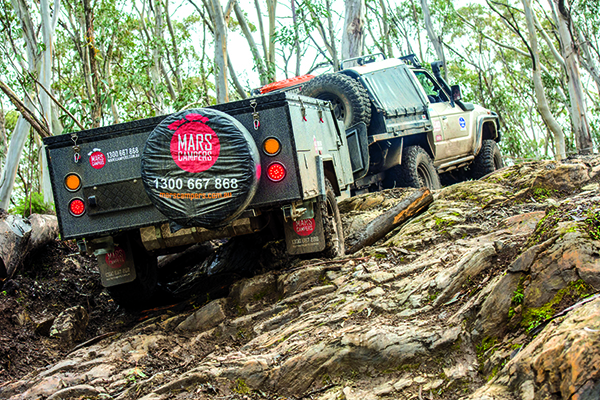There’s no denying the RV industry is booming.
Latest research by the Caravan Industry Association of Australia shows unprecedented growth, with 7.1 million Australians going camping or caravanning in the past two years.
Tourism Research Australia statistics for the year ending 2016 show the highest recorded annual growth in domestic camping and caravanning overnight trips and visitor nights since data was first recorded in 1998.






In 2016, some 615,000 RVS were registered, securing it as the fastest growing category of motor vehicle and there are now more than 100 RV manufacturers in Australia. But with that phenomenal growth comes certain challenges and industry leaders are warning the sector could be headed down the same road as car manufacturing.
CONSOLIDATION TO CUT COSTS
Richard Barwick, CEO of Australia’s largest RV club the Campervan & Motorhome Club of Australia (CMCA) which has some 70,000 members says the reality is, the market will have to consolidate.
“Even larger companies are going to have to move to consolidation and look at their business models to address the future. There is a saturation in the market of RVs and something will have to give as there won’t be enough demand for all that stock.”
Caravan Industry Association of Australia CEO Stuart Lamont agrees.
“While making the industry very competitive and responsive to consumer trends there are simply too many individual manufacturers for the volume being produced.
“While in international markets we have seen some aggregation and absorption of individual manufacturers, which has resulted in even more locally manufactured units being produced.
“This has not yet occurred in Australia.”
National manager of Mars Campers, Celso Prado, says those who ignore the warnings won’t survive.
“One of the arts of surviving in business is to see the writing on the wall before anyone else does, unfortunately many manufacturers may not see it until it’s too late and we feel for them, however the consumer will be the biggest winner in the end as only the fittest and better run teams will survive.”
Carl Bizon, CEO of Jayco, which holds half the market producing 11,000 unit a year in market of 21,500 a year, says there’s no point of consolidation for consolidation sake.
“You have to understand what drives it and at the moment there’s no pressure for it. The growth of new companies and rebirth says you can comfortably exist as a small player so consolidation happens when there’s a threat they are trying to ward off and I’m not sure that exists.”
AUSSIE-MADE OUT THE DOOR?
With the car manufacturing industry in this country all but moving offshore from next year, it does pose the question of whether it’s not a more sustainable model.
As a spokesperson for Mars Campers, which designs in Australia and imports from China, Celso dismisses the claims that imports are bad and take away employment from Australia.
“We also employ here, so when political discussion is about jobs, its bigotry. The money we put back in the [Australian] economy is significant.
“In my opinion, the ‘imports are bad’ mentality prevails among those specific businesses experiencing a bad economy, no matter how good the current economic climate is. Businesses that may be failing to innovate or are simply hanging on to their brand heritage may still have associations or groups, where they still have great influence and manage to propagate the doom and gloom message of ‘let's fight the imports’ instead of helping members sharpen their business skills to take advantage of the changing landscape.”
Celso predicts more manufacturers will have no choice but to move off-shore.
“There will be people who say they won’t ever move out of Australia, but they’ll end up going the same way as Toyota because of very high costs. Why not expand and conquer new countries instead of being squeezed out of yours?”
Don’t, however, question the future of Australian manufacturing to third generation Australian manufacturer Justin Montesalvo who runs Patriot Campers.
He’s as true blue as they come and says there’s absolutely no question in his mind about the future of Australian manufacturing.
“Australian manufacturing has always been the main priority for my company and I hold it pretty close to my heart and can see my kids going the same way and so if we go down that path or building to price point with imported product the quality isn’t here and that’s not an audience we’re targeting.
“The market has been educated and is more savvy now, because of the flooding of imported product. I don’t understand product selling and manufacturing just to make a dollar. I want to leave a legacy for my two boys and daughter. This is what I want to leave for them and we’ll always be advocates for Australian-made.”
Peter Mannfolk Managing Director of leading manufacturers of RV running gear, AL-KO, agrees there will always be a strong place for an Australian-made product.
“They are unique because of the offroad focus, which you don’t see in European manufactured caravans and there will always be demand by the consumer to buy Australian-made because of customisation, while the off-shore manufactured option is more suited to standard product.”
CMCA’s Richard Barwick says he would love to see as much Australian manufacturing as possible but says the manufacturing sector has to listen to the customer.
“This industry has had a chequered past because of compliance, and manufacturers have to ensure product is fully compliant because imports do cause problems with compliance.”
CONSUMER CONFIDENCE
CIAA’s Stuart Lamont says while imported product may in some cases have different features or look, or come at a different price, “they also in most cases are not constructed specifically, with the Australian regulations or product usage in mind”.
“Consumers should do their homework and purchase a product from a manufacturer, retailer, or importer whom they can trust to provide the necessary positive support should they encounter a problem, so they can continue their caravanning and camping adventures into the future.”
Rob Gallagher, CEO of leading content and marketing business, Emprise Group, predicts Australia’s rugged environment will see innovative Australian product continue to flourish, “be it fully manufactured RVs or components within it.”
But he says at the end of the day, the survival of the industry is about ensuring it continues to innovate to meet growing consumer demand.
“Growth in the manufacturing sector is currently driven by the demand for the lifestyle of caravanning. The challenge for manufacturers will be the ability to meet the consumers’ expectations, which will be driven by a range of factors including price, safety and customisation.”
*Statistics from Caravan Industry Association of Australia.




